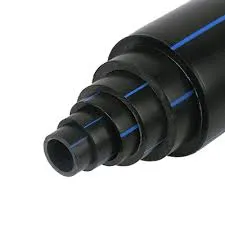Dec . 03, 2024 16:46 Back to list
hdpe tube
The Versatility and Benefits of HDPE Tubes
High-Density Polyethylene (HDPE) tubes have emerged as one of the most popular materials in various industries due to their remarkable properties, cost-effectiveness, and environmental advantages. As the demand for efficient and sustainable solutions grows, HDPE tubes are increasingly being utilized in applications ranging from agriculture to construction, water management, and beyond.
What is HDPE?
High-Density Polyethylene is a thermoplastic polymer made from petroleum. Characterized by its high strength-to-density ratio, HDPE is known for its durability, rigidity, and resistance to impact and chemicals. These properties make it an ideal material for manufacturing tubes that can withstand harsh environments and heavy usage.
Key Properties of HDPE Tubes
1. Durability HDPE tubes are resistant to cracking, impact, and environmental stress, which makes them suitable for use in demanding conditions. This durability extends the lifespan of the product, reducing the need for frequent replacements.
2. Chemical Resistance HDPE is resistant to a wide range of chemicals, including acids, bases, and organic solvents. This property allows HDPE tubes to be used in industries such as chemical processing and pharmaceuticals, where exposure to harsh substances is common.
3. Lightweight Compared to traditional materials like metal or concrete, HDPE tubes are significantly lighter. This feature not only facilitates easier handling and installation but also reduces transportation costs.
4. Flexibility Despite their strength, HDPE tubes possess a notable degree of flexibility. This characteristic allows for ease of installation in various environments, including areas where ground movement may occur.
5. Environmental Impact One of the most significant advantages of HDPE is its recyclability. The material can be recycled multiple times without losing its original properties, making it a sustainable choice in today’s eco-conscious world.
hdpe tube

Applications of HDPE Tubes
HDPE tubes are utilized across numerous sectors due to their versatility. Here are some prominent applications
1. Water Supply and Irrigation HDPE tubes are widely used for water distribution systems because of their excellent resistance to corrosion. In agriculture, they are extensively employed for irrigation purposes, providing an efficient and cost-effective solution for water management.
2. Construction In the construction industry, HDPE tubes are used for drainage, and sewage systems due to their robustness and long service life. They are also favored for underground installations owing to their flexibility and ability to withstand varying soil conditions.
3. Telecommunications HDPE tubing serves as protective conduits for fiber optic cables, shielding them from moisture and physical damage. Its lightweight nature makes it easy to install and maintain.
4. Mining and Industrial Applications In the mining sector, HDPE tubes are used for transporting slurries and other materials due to their ability to handle abrasive substances. They are also used in various industrial applications where chemical resistance is a requirement.
5. Medical Industry HDPE is utilized in medical applications such as tubes for intravenous (IV) fluids and other healthcare products where sterility and safety are paramount.
Conclusion
In conclusion, HDPE tubes offer a multitude of benefits, positioning them as a preferred choice in various industries. Their durability, chemical resistance, and lightweight nature make them suitable for a wide range of applications, from agriculture to construction and telecommunications. With a growing emphasis on sustainability, the recyclability of HDPE further enhances its desirability as an eco-friendly material. As technology advances and the demand for efficient solutions increases, the role of HDPE tubes is likely to expand, paving the way for innovative uses in the future. By choosing HDPE tubes, industries can not only enhance their operational efficiency but also contribute positively to environmental conservation initiatives.
-
High-Quality PPR Pipes and Fittings Durable ERA PPR & PVC PPR Solutions
NewsJul.08,2025
-
Black HDPE Cutting Board - Durable, Non-Porous & Food Safe HDPE Plastic Cutting Board
NewsJul.08,2025
-
High-Quality CPVC Panel Durable HDPE & PVC Panels Supplier
NewsJul.08,2025
-
Double PE Welding Rod Supplier - High Strength, Durable & Versatile Welding Solutions
NewsJul.07,2025
-
High-Quality PVC-O Pipe Supplier Durable 75mm PVC Pipe & Connections Leading PVC Pipe Company
NewsJul.07,2025
-
HDPE Drainage Pipe Supplier – Durable & Corrosion-Resistant Solutions
NewsJul.06,2025

